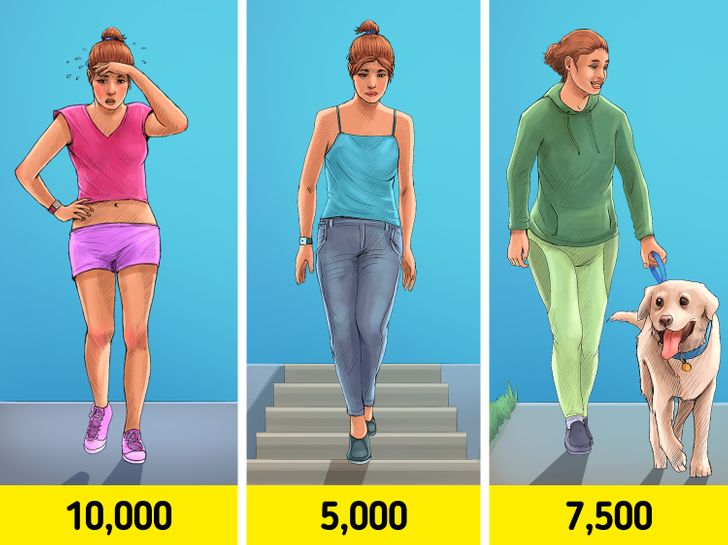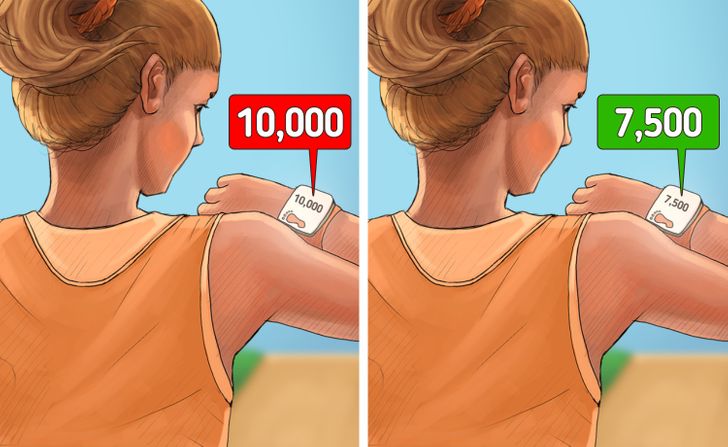I Refused to Take My Pregnant Stepmother to the Hospital

According to a study, walking can increase our levels of happiness, while another suggests that it can also make us more productive. But as good as it is for us — like all things — it’s best to do it in moderation. The number of steps we take matters, and we have to make sure it’s not only beneficial, but also an achievable task.
Bright Side is all about a healthy and active lifestyle, and we believe walking is one of the best things we can do as long as we’re doing it right!
Whether you’re leading a healthy lifestyle or not, you’ve probably heard that you should walk 10,000 steps a day to be healthy. But why that exact number? Well, it seems to come from a Japanese pedometer, sold in 1965, called Manpo-kei, which literally means “10,000 steps meter”. It spread all over the world and eventually became the daily step target for everyone, with FitBit popularizing it in 2009 with the launch of their first wearable.
Some studies indeed suggest that 10,000 steps could be good for some people because it could improve heart and mental health, as well as lower the risk of diabetes. However, the truth is that that number could actually be unnecessary for most people, as there is no real proof that more steps bring more health benefits. So, if you can’t hit that daily goal, don’t be discouraged, as a much lower number could be just as beneficial for you.

What’s even more, 10,000 steps a day is a very big goal, and not many people can or have the time to achieve it. So, if you’re constantly failing to reach it, it’ll likely have negative effects on you on a psychological level and be dispiriting. According to this study, a task was given to British teenagers to reach a certain activity goal. At first, they enjoyed it, but they later started complaining that it was too hard to complete and their motivation dropped.

10,000 has become the default goal for people and fitness trackers alike, but even walking as few as 4,400 steps a day is very beneficial, according to Dr. I-Min Lee. In her study, she examines a large number of women between 62 and 101 years old. They were given accelerometers mounted to their hips that would track their movements for at least ten hours per day, in the span of four to seven days between 2011 and 2015.

The results showed that the mortality rate in women who walked around 4,400 steps a day decreased by 41%, compared to those who were only achieving 2,700 steps a day. While women who walked 7,500 steps a day reduced their mortality rate by 65%. This proves that taking fewer steps than the default goal is still good for us, and should make it a little less challenging to achieve as well. And knowing that walking less isn’t necessarily a bad thing may have a positive psychological effect on people.
The study has some limitations, according to Dr. Lee. It doesn’t tell us how many steps we need to take to improve our quality of life or prevent any cognitive or physical issues.
Here are the bigger-picture facts that Dr. Lee discovered:
If your life is rather sedentary, you should consider adding 2,000 more steps so that you can at least reach 4,400 daily steps. Of course, you don’t have to do it all at once, instead, try taking extra steps whenever possible.
Some advice from Dr. I-Min Lee:
Take the stairs instead of the elevator.
Park at the first empty space you see, not the one closest to the entrance.
Get off the bus one stop before your destination.
At home, break up chores. Make more than one trip to bring the dinner dishes into the kitchen or groceries in from your car.
“Those little things collectively add up,” Dr. Lee says. “Don’t be intimidated or dissuaded by the 10,000 number.”
How active are you? And what is your preferred choice of physical exercise?











